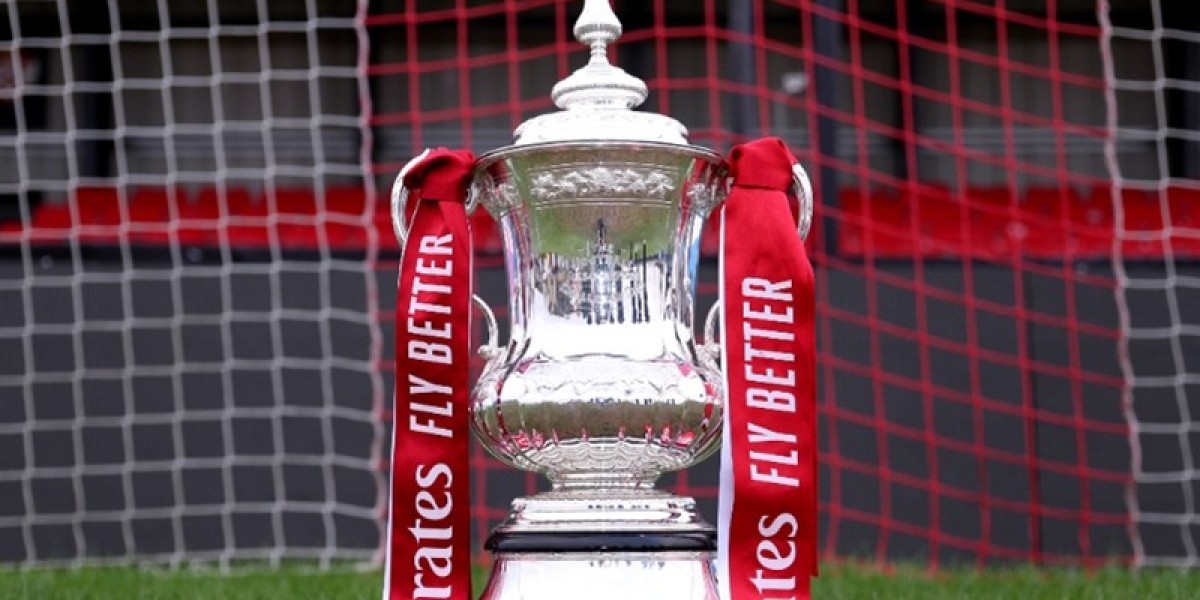The FA Cup, one of the oldest and most prestigious football competitions in the world, has undergone significant changes in recent years. One of the most notable changes that has sparked much debate is the decision to scrap replays from the 2024-25 season onwards. This move is expected to have far-reaching consequences, especially for lower-league clubs, as well as the financial landscape of the competition. But what exactly does this change mean for the clubs, the competition, and the broader football ecosystem?
In this article, we’ll explore the financial implications of removing FA Cup replays, particularly the impact on clubs of different sizes, the competition itself, and how this decision will reshape the way the FA Cup is played. We will also take a closer look at how clubs can adjust to these changes and what it means for the future of the tournament.
The Role of FA Cup Replays: A Brief Overview
Before diving into the financial impact of scrapping replays, it’s important to understand the role that these replays have played in the FA Cup over the years. Replays were introduced as a mechanism to ensure that the competition’s outcome was fair and that both teams had a chance to compete on neutral ground in case of a draw. Historically, replays provided additional revenue streams for clubs, particularly those from lower leagues that may have had limited resources or stadium capacities.
The first round of replays often took place in midweek, which presented a lucrative opportunity for clubs to generate extra income. For smaller clubs, the chance to host a Premier League or Championship team in a replay could be a significant financial windfall. These extra fixtures attracted bigger crowds, created more TV coverage, and provided clubs with the chance to sell more matchday tickets, merchandise, and concessions.
However, as the years have passed, the increasing congestion of the football calendar, along with the demands of international competitions and domestic leagues, has led to growing concerns over the necessity of replays. With the introduction of the scrapping of replays, we now see a shift toward a more streamlined approach, particularly for teams at the top of the football pyramid.
Impact on Lower-League Clubs
One of the most significant consequences of removing replays is the financial blow to lower-league clubs that have historically relied on the extra revenue generated from these matches. For many of these clubs, a replay against a higher-tier opponent has been a chance to bring in significant income that would otherwise be unavailable to them.
Take, for example, a League Two club playing at home against a Premier League giant. A replay would typically take place at the Premier League team’s stadium, where the gate receipts, broadcast revenue, and merchandise sales would benefit the lower-league club in a way that regular league fixtures simply can’t replicate. The replayed match could mean a full stadium, more media attention, and the kind of financial boost that could help smaller clubs pay for crucial operations or even make investments in player development.
Without replays, the opportunity for these clubs to secure such a windfall is significantly reduced. Instead, they must now find alternative sources of revenue and ways to make their participation in the competition financially viable. Smaller clubs will likely need to rely more heavily on prize money, sponsorship deals, and commercial partnerships to supplement their income.
Impact on Bigger Clubs: A Mixed Blessing
For bigger clubs, particularly those in the Premier League, the scrapping of replays could be seen as a blessing in disguise. Replays tend to add additional fixtures to an already packed calendar, leading to player fatigue, potential injuries, and scheduling conflicts. For clubs aiming for success both domestically and in European competitions, the elimination of replays could free up space in the calendar and allow for more focus on key league and international fixtures.
Additionally, top clubs like Manchester City, Arsenal, and Liverpool often find themselves drawn against lower-league teams in the early rounds of the FA Cup. While these matches tend to be straightforward in terms of results, they still require a significant amount of effort and energy, particularly when played in midweek or following a difficult league game. By removing the replay, clubs can focus on their next fixtures without worrying about a potential trip to a lower-league stadium.
From a financial standpoint, the absence of replays could lead to savings on travel expenses, player wages, and the logistics of scheduling additional matches. For these clubs, the impact may be relatively minimal, as they have more than enough resources to compete at the highest levels without needing the financial boost that smaller clubs rely on.
Changes to Prize Money and Revenue Distribution
The FA Cup is one of the most lucrative tournaments in English football in terms of prize money and revenue distribution. The decision to scrap replays could have an impact on how prize money is distributed across the competition.
In previous seasons, prize money was awarded for victories in the third, fourth, and fifth rounds, with clubs progressing through the tournament earning increasingly larger payouts. Additionally, replays played a significant role in generating matchday revenue, which was often shared between the two clubs involved. Now, without replays, clubs will rely more heavily on matchday receipts from the original fixtures and the proceeds from broadcasting rights.
The financial model for the FA Cup will likely need to be restructured in response to this change. The prize money distribution system could be adjusted to ensure that clubs are still incentivized to perform well in the competition, even without the potential for a replay. It’s also possible that the FA will introduce new revenue-sharing mechanisms, particularly to ensure that smaller clubs are not financially disadvantaged by the loss of replays.
The Long-Term Financial Outlook for the FA Cup
In the long term, the FA Cup’s financial landscape is likely to undergo further changes. The tournament has been facing increasing competition for attention and revenue, with the rise of the Premier League and European competitions drawing focus away from domestic cups. Scrapping replays could be seen as a way to modernize the competition and make it more attractive to broadcasters, sponsors, and fans.
However, the true test will be how the FA Cup adapts to the loss of replays and whether it can continue to provide financial opportunities for all clubs involved. The competition will need to find new ways to maintain its relevance and appeal, especially for smaller clubs who have traditionally relied on replays to boost their income.
Moreover, the changes to the FA Cup could lead to a reevaluation of other domestic cup competitions in Europe. The financial implications of these changes could set a precedent for other leagues and tournaments, potentially leading to similar decisions in the future.
Conclusion: Adapting to Change
The decision to scrap FA Cup replays brings with it a host of financial implications that will be felt across all levels of English football. While the change benefits bigger clubs by reducing fixture congestion, it places significant pressure on lower-league clubs that have come to rely on the additional income generated by replays. The long-term success of this decision will depend on how clubs, broadcasters, and the FA adapt to the changing landscape.
For fans, the scrapping of replays means that the FA Cup will be a more streamlined competition, but it also means that the magic of replays—where smaller clubs have the chance to host bigger teams—will be lost. As football continues to evolve, so too will the nature of its competitions, and the financial landscape of the FA Cup will continue to adapt to these changes.
Support Your Favorite Team at KIWW
As a football fan, you can stay updated on all the latest news and developments in the football world. Visit BX99 for exclusive updates on your favorite teams and competitions. Support your team and stay connected with the latest happenings in the world of football.



